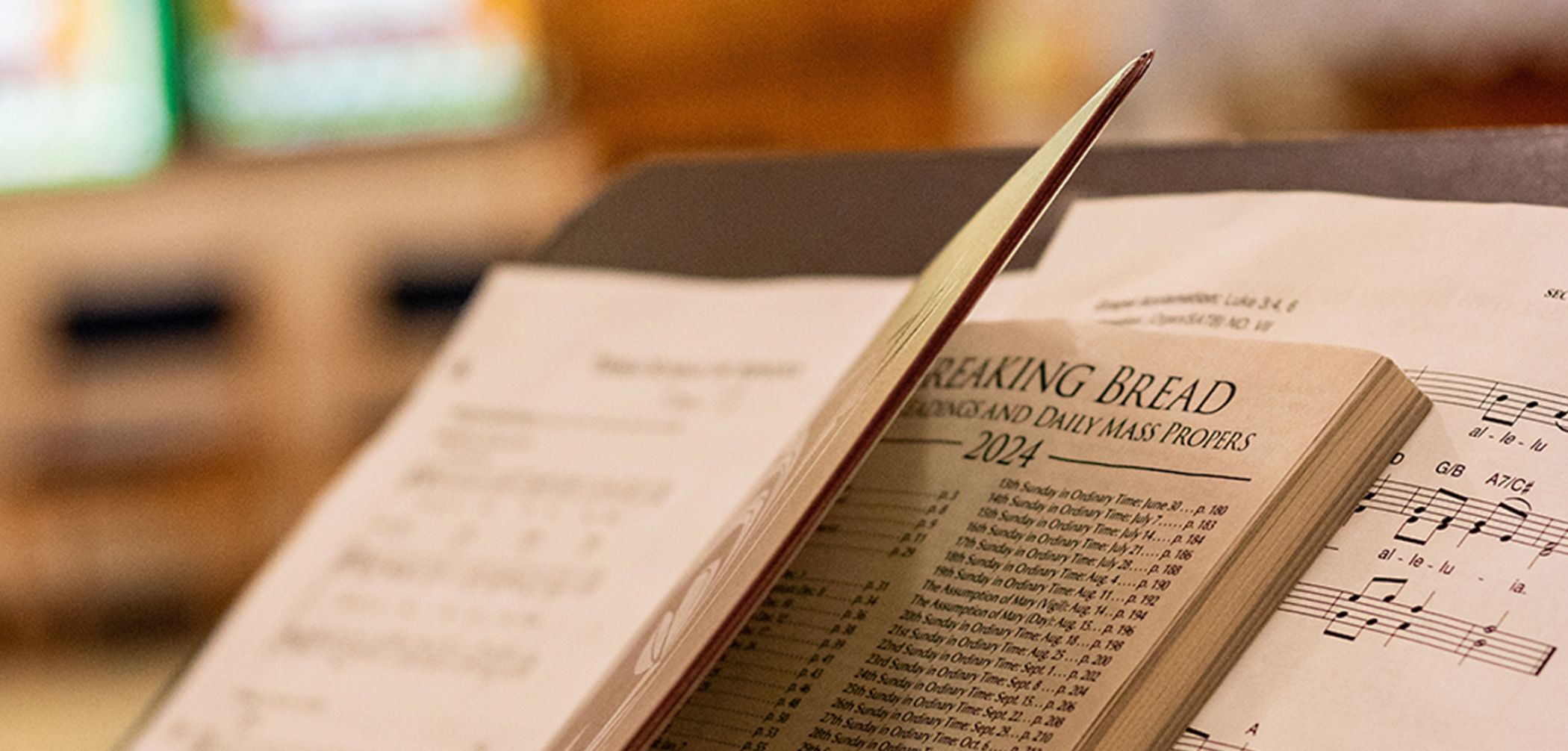
1 Kings 19:4-8
Ps 34:2-3, 4-5, 6-7, 8-9
Eph 4:30--5:2
Jn 6:41-51
Ps 34:2-3, 4-5, 6-7, 8-9
Eph 4:30--5:2
Jn 6:41-51
We are living in a world where people of all races and creeds hunger more for spiritual sustenance than for physical food. In response to the spiritual hunger of people in His own day, Jesus proclaims Himself to be “the Bread of Life that came down from Heaven.”
The First Reading describes the physical and spiritual hunger experienced by the prophet Elijah. The Bread of Life Jesus speaks about, is prefigured in this reading by the miraculous food with which the angel nourished the Prophet Elijah in the desert while he was fleeing from the soldiers of Queen Jezebel. After being nourished by the Lord, Elijah was strengthened for the long journey of forty days to Mount Horeb where God instructed him to continue his prophetic work.
The refrain for today’s Responsorial Psalm (Ps 34), “Taste and see the goodness of the Lord,” invites us to come to Him in our fears and problems and discover how blessed we are when we “take refuge in Him.”
The Second Reading presents Christ Jesus, the “Bread of Life,” as a “sacrificial offering to God for a fragrant aroma.” Paul reminds the Ephesian Christians that, instead of seeking satisfaction in anger, slander, bitterness and malice, they are to nourish one another with compassion, kindness and mutual forgiveness.
Today’s Gospel describes Jesus’ discourse in the synagogue at Capernaum on His return there after His miraculous feeding of the five thousand. During the discourse, Jesus reveals Himself as the true “Bread of Life that came down from Heaven,” to give life to the world. Jesus proclaims Himself as the new and perfect manna, the Incarnate Son of God literally “come down from Heaven.” This means that the Holy Eucharist actually gives us a share of eternal life while we are still on earth. But some of Jesus' followers turned away when He explained the source of His mysterious power and His Heavenly origin.
The Eucharist challenges us to sacrifice ourselves for others, as Christ has done for all of us. Let us appreciate Christ’s presence in the Holy Eucharist: Since the Holy Eucharist is “the Body and Blood, together with the soul and Divinity of our Lord, Jesus Christ,” the Sacrament increases our intimate union with Christ. It preserves, increases, and renews the Sanctifying Grace we received at Baptism and enables us to be rooted in Christ.
Let us recognize that Jesus Whom we consume in the Holy Eucharist is truly God Who assimilates us into His being. Then, from Sunday to Saturday we will grow into Jesus, as Jesus grows in us, our lives will be transformed by the power of the Holy Spirit, and we will become more like Jesus. Thus, we shall share in the joyous and challenging life of being the Body of Christ for the world – Bread for a hungry world, and Drink for those who thirst for justice, peace, fullness of life, and even eternal life. In other words, the Eucharist challenges us to sacrifice ourselves for others, as Christ has done for all of us.
Past Reflections
-
Weekly Reflection
-
Weekly Reflection
-
Weekly Reflection
-
Weekly Reflection
-
Weekly Reflection
-
Weekly Reflection
-
Weekly Reflection
-
Weekly Reflection

